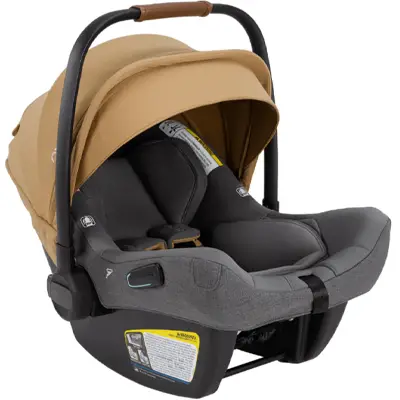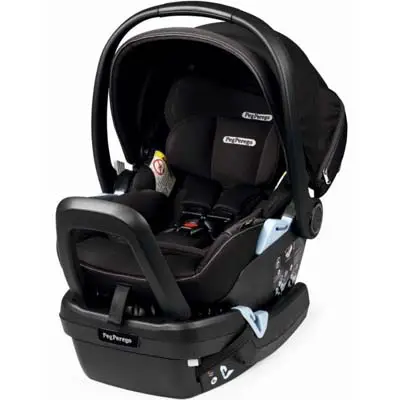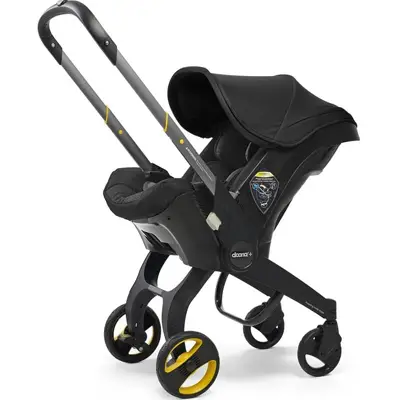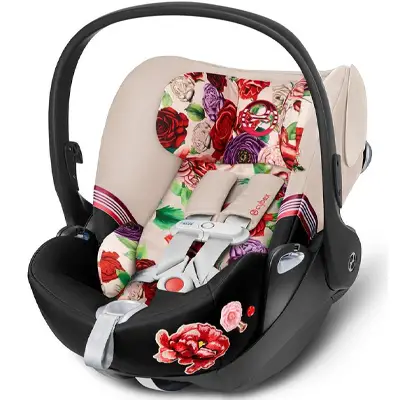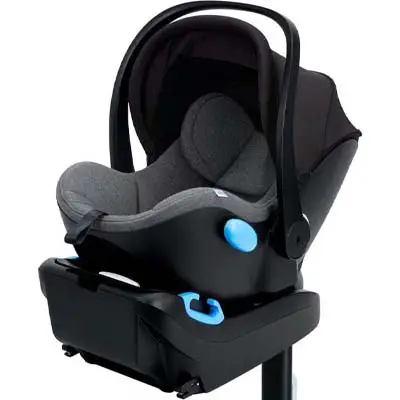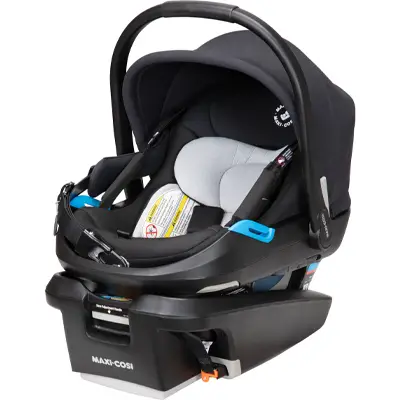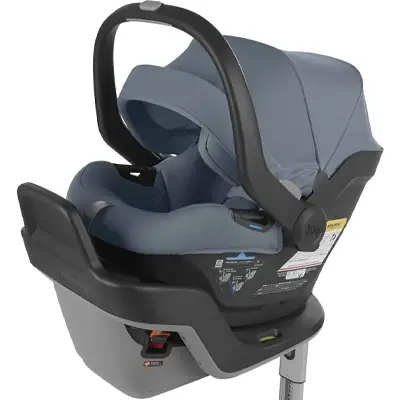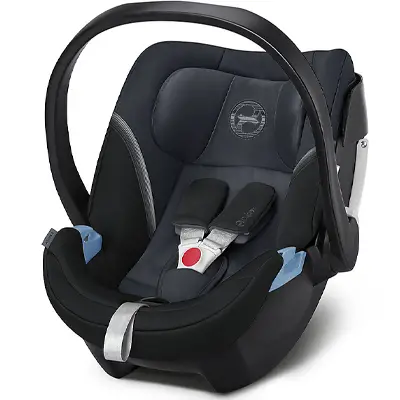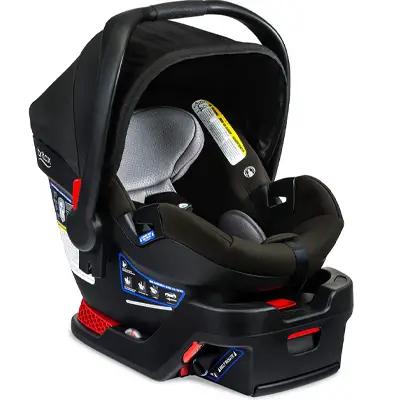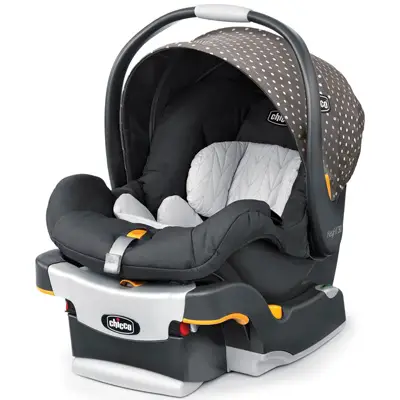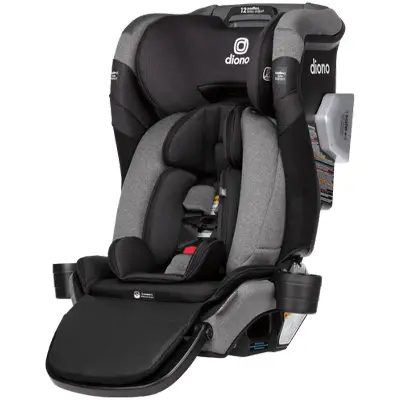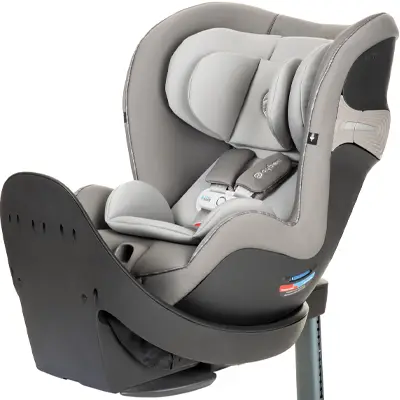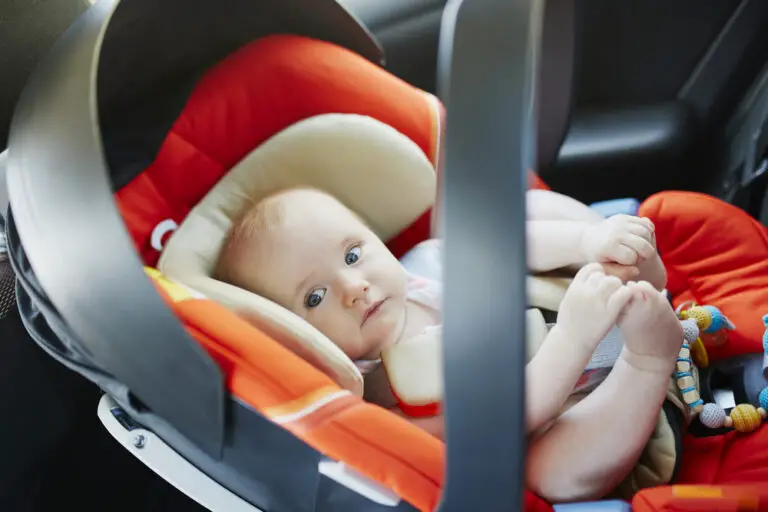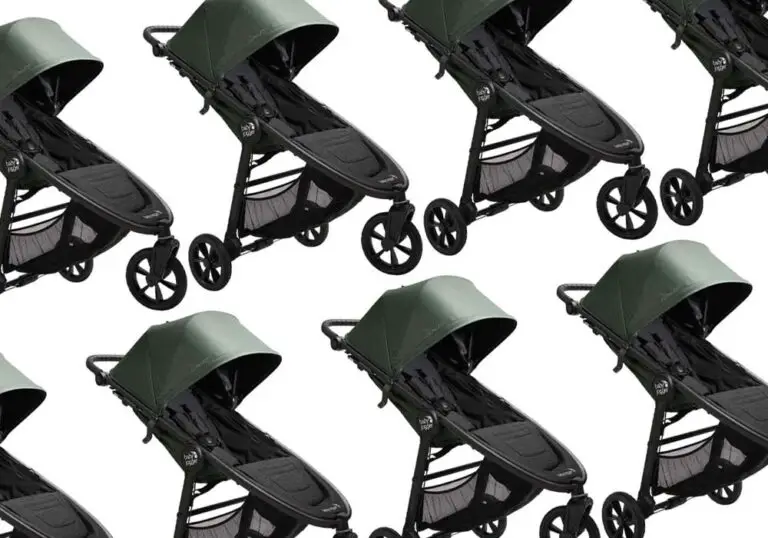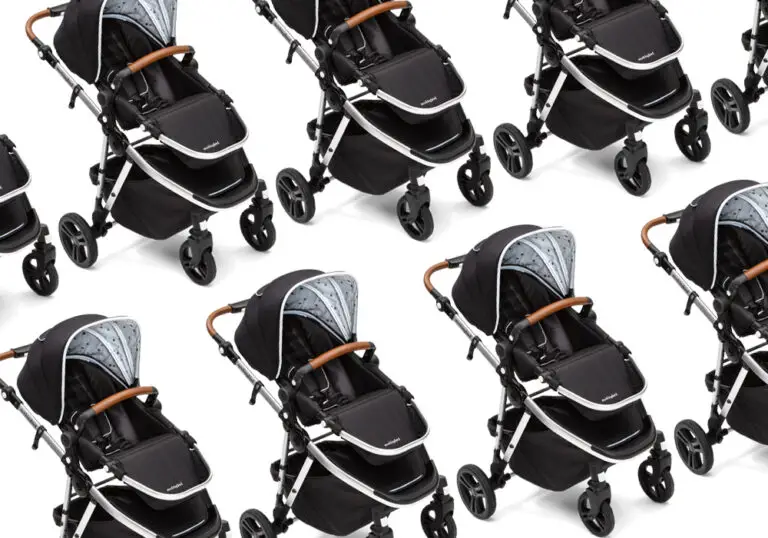12 Best Car Seat for Preemies (w/ Insert & Low Harness)
Bringing a preemie baby home requires some extra attention and care. Not all car seats are suitable for preemies.
The best car seat for preemies will have weight specifications as low as 4 lbs and come equipped with infant inserts and low harness positions.
Our Favorites
Best Car Seat for Preemies
1. Nuna Pipa Lite RX Infant Preemie Car Seat
The Nuna Pipa Lite is perhaps the best 4 lb preemie car seat available. The seat comes standard with the preemie insert providing optimal safety and comfort for babies 4-11 lbs.
A big improvement from the previous Pipa Lite models is the no-rethread harness making it much easier to make adjustments as your infant grows.
The no-rethread harness can adjust down to seven inches without the insert, and it has three crotch belt positions to ensure a snug and safe fit for your preemie.
The seat is the lightest in the Nuna Pipa line; however, the weight specifications don’t include the canopy or the insert. As a result, the seat weighs approximately 1.5 lbs more than listed with the canopy and premie insert.
What We Liked
- The car seat is incredibly lightweight – under 7 lbs
- 5-point harness with height adjustable headrest
- No base needed
- Aeroflex foam for additional protection
- FFA-certified
What Can Be Improved
- The base can be challenging to install
- No rebound bar
- The seat only offers two recline positions
Seat Weight: 6.9 lbs (3.1 kg)
Dimensions: 23 x 27.25 x 17.5 inches
Body Support: Low birthweight insert up to 4-11 lbs (1.8-5 kg)
Expiration Date: 7 years from manufacture date
Lowest Harness Position: 7 inches (without insert)
Minimum Weight: 4 lbs (1.8 kg)
2. Peg Perego Primo Viaggio 4/35 Lounge Preemie Car Seat
The Peg Perego Primo Viaggio 4/35 Lounge is an excellent car seat for preemies under 5 pounds. The Dual Stage Cushion System comes standard, providing extra support for smaller babies in the neck and seating area.
An upgrade since the earlier Primo Viaggio 4/35 is the recline option the lounge model offers.
This preemie car seat has three recline positions that parents can use on a stroller combo or when seated on the floor. In addition, the recline option makes it easier for your baby to nap on the go by providing ergonomic positioning.
Some parents review that the buckle can be challenging to re-fasten. However, it comes apart easily, and the chest clip is easy to operate one-handed.
What We Liked
- Comfort Recline position outside the car or on a stroller
- No re-thread harness
- FAA certified for aircraft use
- Color indicators to ensure the seat is installed correctly.
- Expandable UPF 50+ hood
What Can Be Improved
- Limited color choices
- The buckle is stiff and difficult to re-latch
- It needs adaptors to work with some travel systems.
Seat Weight: 10 lbs. (4.5 kg)
Dimensions: 28.5 x 17 x 26.5
Body Support: Dual Stage cushioning system – birth to 8 lbs (3.6 kg)
Expiration Date: 7 years from the manufacturing date
Lowest Harness Position: N/A
Minimum Weight: 4 lbs (1.8 kg)
3. Doona+ Preemie Infant Car Seat Stroller
Parents have never seen a car seat for a preemie like the Doona+ before! An all-in-one car seat and stroller option suitable for babies 4-35 pounds.
This unique car seat instantly transforms from a car seat to a stroller with the push of a button.
The Doona+ comes equipped with a preemie car seat insert for birth through 3-months and premium head support. The adjustable handlebar functions as a stroller handle and anti-rebound bar all-in-one!
Because it is an all-in-one car seat and stroller combo, you’ll need to purchase a new stroller once your baby outgrows the car seat.
What We Liked
- It comes with an Infant Essentials bag
- FAA approve
- Comes fully assembled
- Fun, bright color options
- 5-point adjustable harness
What Can Be Improved
- Heavy
- Rear-facing/Infant use only
- It may not fit all airline seats – check in advance of booking.
Seat Weight: 17.2 lbs (7.8 kg)
Dimensions: 17.4 x 26 x 22.4 in
Body Support: Infant Insert – Weight not specified; Doona states it is suitable for birth-3 months.
Expiration Date: 6 years from the manufacturing date
Lowest Harness Position: N/A
Minimum Weight: 4 lbs (1.8 kg)
4. Cybex Cloud Q Sensorsafe 2.1 for Preemies
SensorSafe is an infant car seat for 4 lbs and up with several features that make it one of the best infant car seats for preemies. It includes the SensorSafe feature, which alerts parents via an app of unsafe conditions in the backseat.
An upgrade from the past is this version offers a full recline when out of the car. This feature creates ergonomic positioning like a bassinet, which is ideal for newborns.
One major drawback to this seat is its weight; without the base, it weighs 14 pounds. It may be challenging for some parents to lug around, especially with the added weight of their baby.
What We Liked
- Stylish patterns and colors
- 5-point harness that automatically adjusts with the headrest
- XL sun canopy with UPF 50+ protection
- 11 position headrest
- Footrest option to provide more comfort
What Can Be Improved
- Heavy seat, almost 14 pounds without the base.
- The cover is difficult to remove for washing.
- Harness straps may be too high for some newborns.
Seat Weight: 13.9 lbs (6.3 kg)
Dimensions: 26.4 x 17.3 x 15.6 inches
Body Support: Newborn insert up to 4-11 lbs (1.8-5 kg)
Expiration Date: 6 years from manufacture date
Lowest Harness Position: 8 inches
Minimum Weight: 4 lbs (1.8 kg)
5. Clek Liing Premature Infant Car Seat
The Clek Liing 2021/2022 offers peace of mind for parents of preemies with its incredible safety ratings and unique newborn insert. The Clek Liing patented 2-stage newborn insert provides head and seating support to babies 4-11 lbs.
The seat has seven different incline positions, which can be adjusted even after the seat is installed. A proper incline is essential for newborns to provide proper head and neck support.
The biggest drawback to this seat is the price; it is costly. However, if you are the parent of a preemie, you’ll likely be using an infant car seat longer than other parents making this a worthwhile investment.
What We Liked
- The seat is narrow enough to fit three across
- The seat has 7 incline positions
- FFA-Approved
- Use the baseless European routing system
- Fabric is easy to wipe and spot clean
What Can Be Improved
- It is a very pricey seat that your baby can only use for one year
- Heavier than most competitors
- The look is somewhat bland with the standard colors.
Seat Weight: 9 lbs (4.1 kg)
Dimensions: 27.7 x 22.6 x 16.9 inches
Body Support: Newborn insert up to 4-11 lbs (1.8-5 kg)
Expiration Date: 9 years from the manufacturing date
Lowest Harness Position: 4.5 inches (with infant insert)
Minimum Weight: 4 lbs (1.8 kg)
6. Maxi Cosi Coral XP Infant Preemie Baby Car Seat
The Maxi Cosi Coral XP seat is designed specifically for smaller babies making it one of the best car seats for premature babies.
Suitable for babies 4-22 lbs and with an adjustable harness height as low as 5.5 inches, it is an excellent premature baby car seat.
The seat has plush, premium cushioning to provide additional head and neck support and soft harness pads to prevent irritation. In addition, the anti-rotation bar provides extra head and neck stability while driving.
One change since the last model is this latest version has an ergonomic, cross-body shoulder strap for easier carrying.
The Maxi Cosi Coral preemie infant car seat is made for smaller babies making it ideal for premies, but full-term babies may quickly outgrow the seat.
What We Liked
- FAA certified for aircraft use
- Nesting System – Inner carrier weighs only 5 lbs
- Crossbody carrying option
- Anti-rotation stability leg
- Fire-retardent, machine washable fabric
What Can Be Improved
- Only holds babies up to 22 lbs
- Compatible with travel systems but requires adapters
- No recline option
Seat Weight: 12.3 lbs (5.6 kg) Inner Carry Shell 5 lbs (2.3 kg)
Dimensions: 31 x 17.5 x 18 inches
Body Support: Infant Cushion – Weight limit not specified
Expiration Date: 8 years from the manufacturing date
Lowest Harness Position: 5.5 inches
Minimum Weight: 4 lbs (1.8 kg)
7. UPPAbaby Mesa Max Preemie Car Seat
The new Mesa Max seat, set for release in the Fall of 2022, has more safety features than any previous UPPAbaby models.
The included infant insert for premies 4-11 lbs. makes it the perfect premature baby car seat. It also comes equipped with a large headrest for added comfort and side-impact protection.
A significant upgrade compared to the previous UPPAbaby seats is that the Max version is the first in the line to have a stabilizing load leg.
The price tag is a bit high for some parents, but parents can reuse the seat for additional children within the seven-year expiration date.
What We Liked
- Lightweight, easy to carry and transfer
- XL sun shade provides 43% more protection than before
- Carry bar works as a rebound bar for protection in a collision
- European routing system
- Side ventilation for added airflow
What Can Be Improved
- The stabilizing load leg does not work with all car models.
- Limited color choices
- Costly car seat
Seat Weight: 9.9 lbs. (4.5 kg)
Dimensions: 20.8 x 14.5 x 12.8 inches
Body Support: Infant Insert 4-11 lbs (1.8-5 kg)
Expiration Date: 7 years from the manufacturing date
Minimum Weight: 4 lbs (1.8 kg)
Lowest Harness Position: N/A
8. Cybex Aton M SensorSafe Infant Preemie Car Seat
The Cybex Anton M SensorSafe has some unique safety features that make it worth considering as a car seat for preemies.
It comes with a newborn insert for babies 5-11 lbs and utilizes Cybex’s patented SensorSafe technology to alert parents of dangers in the back seat.
However, the Cybex Anton M may not be for all newborns. Some parents review that the harness straps don’t lower enough for their baby for a safe ride.
There is also some confusion over the minimum weight. The seat is listed as usable from birth or 4 lbs, but the infant insert specifically says 5-11 lbs.
What We Liked
- The seat has an anti-rebound back
- The seat has different recline positions
- The seat has 11 position headrest
- XXL sun canopy with UPF 50+
- The base is equipped with a stabilizing leg
What Can Be Improved
- The seat uses a rethread harness
- The harness isn’t low enough for many smaller babies
- 6-year expiration date – lower than most competitors
Seat Weight: 9.3 lbs (4.2 kg)
Dimensions: 26 x 17.3 x 22 inches
Body Support: Newborn insert up to 5-11 lbs (2.3-5 kg)
Expiration Date: 6 years from the manufacturing date
Lowest Harness Position: 8 inches (with infant insert)
Minimum Weight: 4 lbs (1.8 kg)
9. Britax B-Safe Gen2 FlexFit Car Seat
The Britax B-Safe Gen2 FlexFit is the best preemie car seat for parents who want a guaranteed fit for their newborn. It comes with an infant pillow for added premie support and has one of the lowest adjustable harness heights at 5.5 inches.
It has tagless, smooth-touch knit fabric to prevent irritation to your baby’s delicate skin and comfort pads on the harness to prevent rubbing on their neck.
A few reviews criticize the latch system stating their seat arrived with no latch or a faulty latch, while others claim it broke after a few months. However, the seat comes with a one-year limited warranty if you register your seat once purchased.
What We Liked
- XL UPF 50+ canopy
- Easy-read level indicators readable from all angels
- European belt guide makes it easy to install without a base
- 6-position headrest and harness
- Cool n Dry fabric wicks away moisture
What Can Be Improved
- Limited color choices
- Heavy, over 11 pounds
- Somewhat difficult latch system
Seat Weight: 11.6 pounds (5.3 kg)
Body Support: Removable Infant Pillow – Birth to 11 lbs. (5 kg)
Dimensions: 17.9 x 25.85 x 26.6 inches
Expiration Date: 6 years from the manufacturing date
Lowest Harness Position: 5.5 inches
Minimum Weight: 4 lbs. (1.8 kg)
10. Chicco Keyfit 30 Infant Car Seat
Chicco is a trusted brand of car seats, and the Chicco Keyfit 30 is a great car seat for premature infants. In addition, it includes a newborn insert that provides added support for smaller babies.
The Chicco Keyfit has some of the best crash test ratings among car seats and uses energy-absorbing foam throughout the seat for the utmost protection. When it comes to premature baby car seats, Chicco is the number one selling brand in the United States.
The biggest downside to this seat is that it lacks the European belt path option, so it’s not ideal for parents who use taxis frequently. However, you can use the American belt option if needed.
What We Liked
- Fun and stylish patterns
- Easy to install
- Latch clips with one-handed LATCH tightener
- FAA Approved
What Can Be Improved
- No European belt path option
- Small shade canopy
- Re-thread harness
Seat Weight: 9.6 pounds (4.35 kg)
Body Support: Newborn insert – weight not specified
Dimensions: 22.5 x 17 x 27 inches
Expiration Date: 6 years from the manufacturing date
Lowest Harness Position: N/A
Minimum Weight: 4 lbs. (1.8 kg)
11. Diono Radian 3QXT+ All in One Convertible Car Seat
The Radian 3QXT+ will support a preemie 5lbs and heavier. It is an an-all-in-one convertible seat making it the only seat your child may need. This super-safe seat is ideal for parents who want to shop once for a car seat.
A significant improvement from the prior version is the latest model includes an anti-rebound panel for added stability when rear-facing.
Unfortunately, the Radian 3QXT+ is not a car seat for a 4-pound baby. So if you’re expecting multiples or a preemie and unsure how tiny your baby will be, you should probably choose a different seat.
What We Liked
- 8 layers of side-impact protection
- XL cup holder
- Parents can fit three seats across in most vehicles – ideal for multiples
- The cover is removable and machine washable
- Adjustable calf support once forward-facing
What Can Be Improved
- Parents may be unable to adjust the passenger side front seat while using this car seat.
- The angle adjuster feature is not helpful until your infant can hold their head up.
- The seat is cumbersome, over 30 lbs.
Seat Weight: 34.2 lbs (15.5 kg)
Body Support: Newborn insert and Newborn wedge 5-10 lbs (2.3-4.5 kg)
Dimensions: 28.5 x 17 x 16 inches
Expiration Date: 10 years from manufacturer date
Child Weight: 5-120 lbs (2.3-54.4 kg)
Lowest Harness Position: 7.5 inches with infant insert, 8 inches without.
12. Cybex Sirona S 360° Rotational Convertible Preemie Car Seat
The Cybex Sirona S 360 is a one-of-a-kind preemie baby car seat that will last you years beyond the infant months. It is a convertible seat designed to fit preemies to children 65 lbs.
It has a unique 360 base that swivels when it’s time to transition forward facing. Therefore, parents never need to remove and re-install the seat.
The seat includes a car seat insert for preemies 4-11 lbs and comes equipped with SensorSafe technology to alert parents of potential dangers in the back seat.
The biggest downside to this seat is its weight. It weighs over 30 pounds. In addition, it isn’t FAA for air travel, so this seat isn’t best for parents who love to travel.
However, since it is a convertible seat, it will last you through your child’s preschool years.
What We Liked
- Load leg to stabilize base in a crash
- Dishwasher-safe cup holder included
- 12-position headrest and a no-rethread harness
- Linear side-impact protection
- More extended expiration date than most car-seats
What Can Be Improved
- Not ideal for parents who wish to use the car seat as a carrier
- Not FFA approved for airline travel
- Incredibly heavy
Seat Weight: 30.4 lbs (13.8 kg)
Dimensions: 30 x 19 x 24 inches
Body Support: Newborn insert up to 4-11 lbs (1.8-5 kg)
Expiration Date: 10 years from the date of manufacture
Lowest Harness Position: 7 inches (without infant insert) 8 inches (with infant insert)
Minimum Weight: 4 (1.8 kg)
Car Seat Test for Preemies
The American Academy of Pediatrics (AAP) recommends all babies born before 37 weeks have a tolerance test. The tolerance test, also known as the car seat test, ensures your baby can tolerate sitting in a semi-reclined position while in a car seat.
A tolerance test is also performed on babies born with specified medical conditions such as Down Syndrome or Pierre Robin sequence, babies who weigh less than 5.5 lbs, and babies with heart conditions.
When the hospital staff has decided your baby is ready to go home, you will be asked to bring your car seat inside, and your baby will sit in the car seat for a pre-determined amount of time. A pediatric nurse will monitor your baby’s oxygen levels and heart rate during the test.
Choosing the Best Car Seat for a Premature Baby
Choosing the best preemie infant car seat is essential because premies have specific needs for their smaller size. Parents should evaluate the minimum weight, harness height, additional body support, and safety features.
Body Support
Preemies need additional support when seated in a car seat. They especially need support in the head and neck area as their muscles are less developed than full-term babies. Choose a car seat for your preemie with an infant or newborn insert. Most inserts work for babies as small as 4 lbs and go up to 8-11 lbs, depending on the brand.
Minimum Weight
Preemies are smaller than fully developed babies. A preemie is any baby born before 37 weeks gestation. If your little one is only a few weeks early, they will likely weigh around 5-7 lbs. However, some babies can weigh as little as 4 lbs. Babies weighing less than 4lbs will likely remain at the hospital receiving specialized care, so the smallest weight recommendation on car seats is 4 lbs. Be sure you purchase an infant seat that can accommodate a small newborn.
Fabric
Some babies spend a lot of time commuting in their car seats, so look for seats with breathable, soft fabric. More car seat companies are releasing seats with naturally flame-retardant fabrics like Merino wool so that no additional chemicals are added to the fabric. If you are going for a lot of walks, choose a seat with an SPF or UPF-protected canopy.
Low Harness Positions
Not all harnesses are created equal. For example, short preemies might struggle to fit in seats with higher harness heights. The ideal placement is the clip across their chest and the straps right above their shoulder. Nearly all car seats have adjustable harnesses, but the heights vary from brand to brand. In addition, adding or taking away the infant insert changes the harness height.
Car Seat Weight
The weight of the actual seat may or may not be important to you. A lighter seat is best if you need to take the seat out frequently to attach it to a stroller or carry it. However, if you’re purchasing an all-in-one or convertible seat that stays put once secured into your car, the weight won’t matter as much.
Safety Features
As parents, we want our babies to stay safe, so safety features are critical when choosing an infant car seat. Premies have weaker head and neck muscles and need extra support. Look for seats that include side-impact protection, infant insert, anti-rotation stabilizing bars, or anti-rebound bars. The Cybex SenssorSafe seats include an extra layer of protection by alerting parents via an app of unsafe conditions in the backseat.
FAQ
Do preemies need a special car seat?
Most preemies do not need a special car seat. However, in rare instances, smaller babies may need a car bed since there are no car seats for babies under 4 pounds.
Is Nuna PIPA good for preemies?
Yes. Nuna Pipa offers a range of car seats, including the Nina PIPA Lite RX seat that supports babies as small as 4 lbs with the low birthweight insert.
How do you put a preemie in a car seat?
You put a preemie in a car seat the same way as a newborn. Move the straps to the side and gently lay them into the seat while supporting their neck and back.
How long can a preemie be in a car?
The general rule for babies is two hours at a time. However, your preemie may have a shorter window determined by their doctor and a tolerance test.
Can premature babies travel by car?
Yes, as long as the hospital has cleared your baby to go home, it is safe for them to travel by car. However, preemies may not be able to tolerate longer car trips.
Do preemies have to pass a car seat test?
Most babies born before 37 weeks will need to pass a tolerance or car seat test at the hospital. This test ensures they can handle being in a car seat in a semi-reclined position.

L. Elizabeth Forry
L. Elizabeth Forry is an Early Childhood Educator with fifteen years of classroom teaching experience. She earned a Master of Science in Early Childhood Education from The University of North Dakota and has a Bachelor of Arts in English and one in Music from Lebanon Valley College. She has taught children in Japan, Washington D.C., Chicago, and suburban Maryland. She is trained as a reading therapist, has a TEFL certification, and has done extensive work with children regarding mental health, social-emotional development, and gender development. She has written curriculum for children and educators and has led training sessions for parents and educators on various topics on early childhood development. She is the mother of two boys and resides outside of Annapolis, Maryland.

